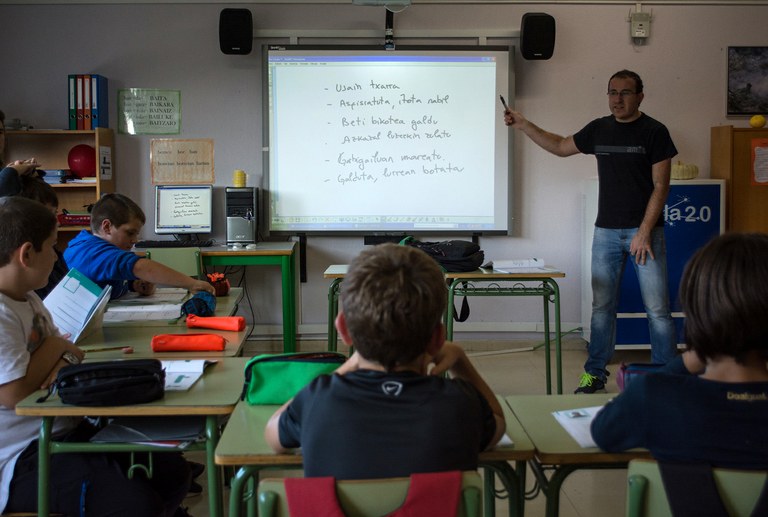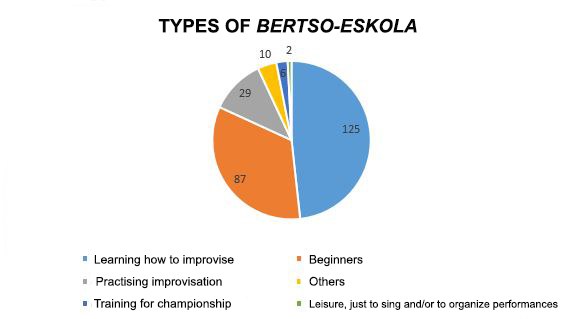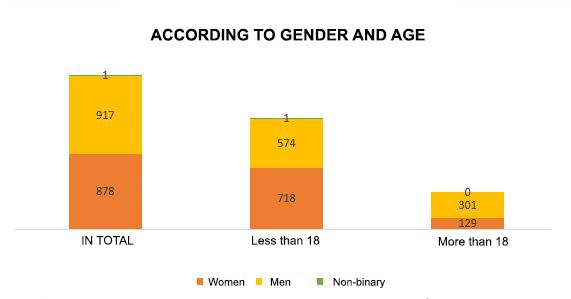1,800 people learning and enjoying bertsolaritza
The data collected in recent months show that bertso-eskolak or the schools of bertsolaritza are generally in good health: 1,796 people in 117 municipalities gather at these schools to train. It is also an activity shared by people of different ages, since 1,300 children and about 430 adults take part, for which 112 teachers work.

A group of children in the middle of a lesson about bertsolaritza in Zizurkil. Jakub Szafranski / XDZ
This information also helps to detect aspects to improve such as the gap between the number of men and women who participate in these schools when being adult. It will be advisable to study how to encourage the participation of women at this stage. Further study would be necessary as well to respond to the different needs of teachers and to analyze the situation depending on geographical conditions.
Actually, it must be noted that these data offer us a quantitive vision to contrast, taking into account neither the particular reality of each participant nor the sociolinguistic features of their surrounding.
Half in groups of children; but less than a third in case of adults
Specifically, there are 1,796 trainees in 259 groups and spread over 117 municipalities. The figures for women and men are similar – 49% women and 51% men – but the balance is broken when age comes into play. In case of groups under the age of 18, the percentage of girls is 56% and that of boys is 44%; nevertheless, in case of adults, the percentage of women drops to 30%.
These data raise many questions: why do adult women leave the bertso-eskola? Do they keep in contact with the world of bertsolaritza after leaving these schools? What could we do to increase their participation at that age? More information should be collected to understand the reasons behind these figures and give them a response.
Beginners and improvisation training sessions
Some groups get together to prepare themselves for the championships; others just aim to sing bertsos in a more informal way and/or organize performances in their towns or regions. Most of the groups are for training and initiation: 125 and 87 out of 259, respectively.
The schools of bertsolaritza are the main promoters of the Basque improvised verse singing art as they spread it in their surrounding and organize themselves autonomously.
The association Bertsozale Elkartea offers resources to facilitate the work of teachers. There are 112 teachers and in 74% of the cases the association supports them. In other occasions, teachers are hired by Basque and cultural associations or local entities, and there are even groups that work without teachers, specifically 8%.

Features of schools of bertsolaritza. Data: 2019 and 2020.
The data collected correspond to the 2019-2020 academic year and it has been obtained thanks to the questionnaires completed by those responsible for the bertso-eskolas. Bertsozale Elkartea has been able to collect data thanks to the University of the Basque Country, for which we have had the collaboration of a student of the Degree in Social Anthropology.
The information will be treated confidentially and the general data will be used for research. The objective is to compile it every four years in order to know the evolution of the movement.
More information at www.bertsoeskola.eus.

